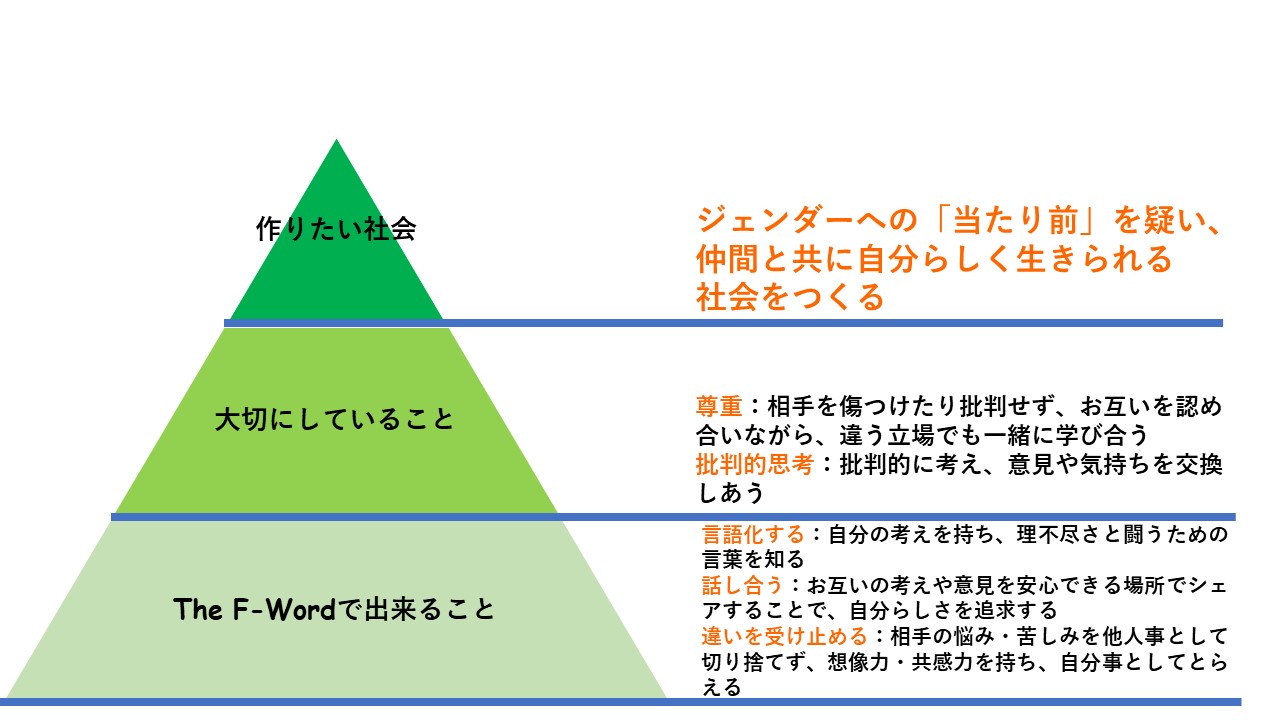
“The F-Word”とはもともと「Fuck(性交渉)」を意味する英語圏での放送禁止用語を口にしないために使う表現です。しかし、私たちが団体名として使う“The F-Word”はFeminists(フェミニスト)のFを意味しています。1960年代に勃興した第2波フェミニズムは社会や家庭の中で作られる性別役割分担を批判し、「女らしさ」を押し付けられることによって生きづらさを感じている多くの女性が共感を示しました。しかし、“I am a feminist. (私はフェミニストです)”と明言することに抵抗感を覚える女性も少なくないのではないでしょうか?それは、男性優位の社会やメディアによって 「Feminists=ブスのヒガミ、モテない女の活動」といった偏った見方が蔓延し、Fuckと同じように軽々しく使えない言葉としてスティグマ(偏見)を植え付けたからです。
フェミニストであることはなにも、活動家であったり、過激な発言をすることだけではありません。もし単純に女性であることで進学や就職において自分が本当にしたい選択ができなかった経験があったり、化粧をせずに生きることを誰かに批判されたり、料理が趣味であることを女らしいと褒められたりすることに違和感を感じていれば、あなたはフェミニストです。ですが未だに「私はフェミニストです」と名乗ることにスティグマ(偏見)を感じる女性も多いように感じます。
私たちはすべての「生きづらさ」を感じる女性達が、その要因に①気づき②言語化し③他者に発信することによって、自分たちの権利を堂々と主張できるコミュニティを形成したいと考えています。日本語でも英語でもクリティカルに考え、言語化する能力を身につけることによって、より発信力のある女性を育成したいと考えます。このコミュニティで様々な気づきを得た女性たちが、自分たちの職場や家庭で発信していくことで、より多くの女性にとって生きやすい社会を作っていくことを目指します。この事業を通して、すべての女性が堂々と“私はフェミニストです”と発信できる社会を目指します。
